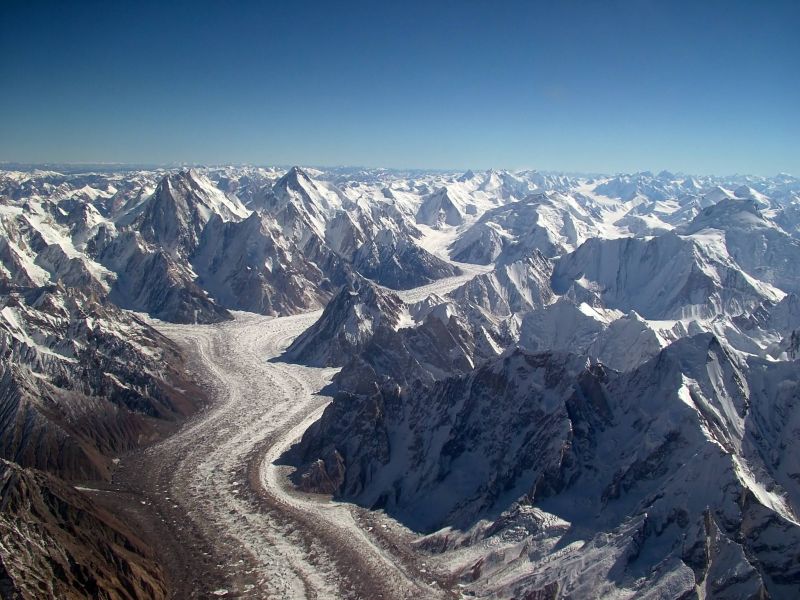Millions Stare at Water Deficit as Global Warming will Melt a Third of Asian Glaciers by 2100
Published on by Rituraj Phukan, Chief Operating Officer at Walk For Water in Social
Asia’s mountain glaciers, which are home to the largest store of frozen water after the poles and feed many great rivers including the Ganga, will lose at least a third of their mass by the end of the century because of global warming, a new study has warned.

Baltoro glacier from air, Image source: Wikimedia Commons, Author: Guilhem Vellut
This prediction is based on the best-case scenario – that the world will manage to limit average global warming to 1.5 degrees Celsius over pre-industrial levels.
Scientists at the Utrecht University in the Netherlands, where the study was done, said that more than one billion people across Asia who depend on rivers Yangtze, Ganga and Mekong, which are fed by the Himalayan glaciers, for fresh water, farming and hydro-electricity will be affected.
“At the moment, it does not look like we’ll be able to keep global warming down to 1.5 degrees Celsius,” said Utrecht University’s Philip Kraaijenbrink, a physical geographer and the report’s lead author. “Unfortunately, it seems more likely that between 49% and 65% of all ice in Asia will have melted by 2100, placing a significant strain on the region.”
Read full article: Scroll
Media
Taxonomy
- Resource Management
- Water Access
- Water Resources
- Climate Change
- Water Security
- Water Losses
- Climate Change Resilience
1 Comment
-
Since the Global warming scam is now over I am in disbelief that this nonsense is still being pushed by profiteering carpet baggers. The false reports this week were "hottest years on record". Not even close. World temperatures are cooling rapidly. Larsen B broke off and hit the panic news nut jobs. They for got to mention the opposite side of Antarctica has increased it mass by 3 times that lost by Larsen B. (Larsen B broke off because of the upwelling of a volcanic site). The year round Artic ice caps are now 50 miles farther south. Polar bears have returned to their happy hunting grounds. A special thanks to national geographic for their filming these current events.
The above ?article? is a scam intended for the uneducated population.